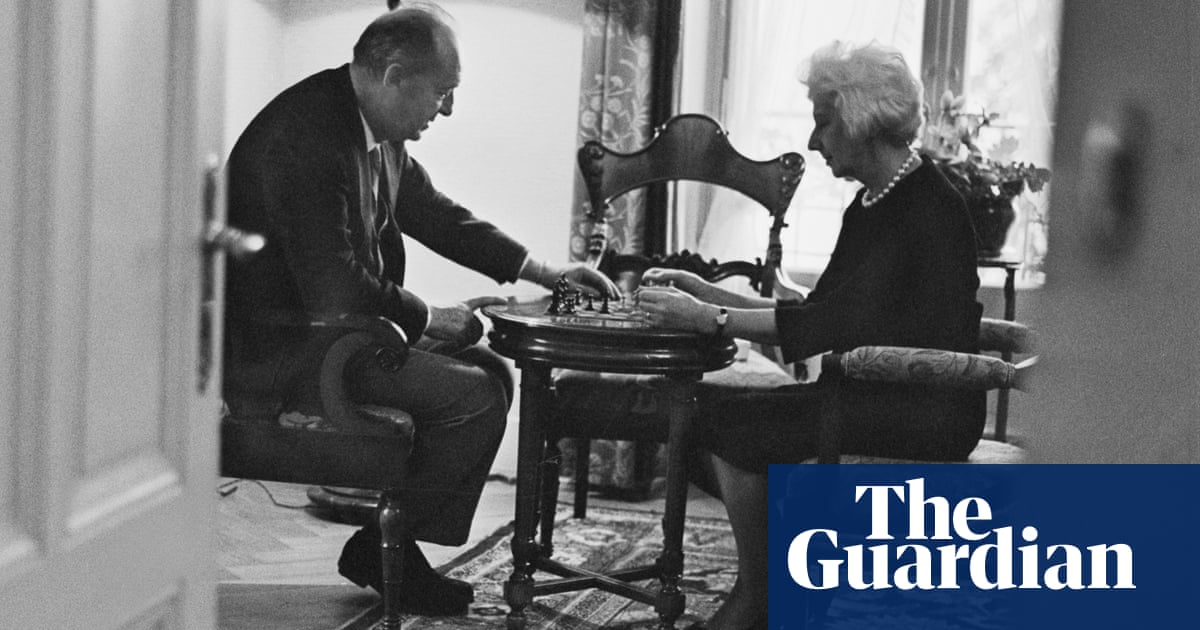
Graham Greene was willing to go to jail to defend the uncensored publication of Vladimir Nabokov’s novel Lolita, according to a previously unpublished diary kept by the Russian-born author’s wife.
Greene’s attempts to rescue the book that he described in 1955 as “one of the three best novels I’ve read this year” from censorship followed a campaign to have it banned in Britain, where it was only published four years later.
The novel, which traced a middle-aged European man’s obsession with and sexual abuse and rape of a 12-year-old American girl who he passed off as his daughter, divided the literary world.
The reaction to its release is detailed in a diary kept by Véra Nabokov, the author’s wife, between June 1958 when the novel finally appeared in the US, and August 1960. The diary has now been published for the first time as L’ouragan Lolita (The Lolita Hurricane) by French publishers L’Herne.
After being rejected by four American publishers, Lolita was first released in English in 1955 by the Paris-based Olympia Press, run by Maurice Girodias, the son of British writer and editor Jack Kahane.
However, the novel passed almost unnoticed until a few copies found their way to the UK and Graham Greene wrote an appreciation of it in the Sunday Times that Christmas.
The following month the editor of the Sunday Express John Gordon launched a campaign to have Lolita banned, writing that it was “the filthiest book I have ever read”, “sheer unrestrained pornography”. Other literary luminaries took one side or the other and the Home Office in London put pressure on the French interior ministry in Paris to have the book banned, which it did in 1958. The ban was subsequently overturned in a French court, then reimposed before being finally lifted the following year.
Some time in 1958, the British publisher George Weidenfeld contacted Nabokov, expressing his desire to publish Lolita in Britain. His business partner Nigel Nicolson, with whom he had founded publishing house Weidenfeld & Nicolson, was more ambivalent about the project, however.
On 29 January 1959, Véra wrote that Nicolson, who was the Conservative MP for Bournemouth East and Christchurch, had “got into hot water with his very conservative and very rich Bournemouth constituency” over plans to publish Lolita. Nicolson’s mother, the novelist and poet Vita Sackville-West, was far from convinced by the book, saying she “saw no literary merit in it at all”.
Véra notes that Greene, concerned by newspaper reports that Lolita was to be “badly cut” by Weidenfeld, had asked his own publishers, the Bodley Head, to write to Nabokov saying they were “still willing to publish it in full” and Greene would formally approve this, “thus becoming the target of prosecution”.
“He [Greene] is willing … to go to jail for Lolita”, as “there could be no better reason”, she adds. “And there would also be a chance of the censors being hesitant to arrest Lolita’s publisher, if they had to arrest Graham Greene.”
She then writes that Weidenfeld had wired: “Do not be alarmed by the Saturday Times report,” adding that the publisher had assured Nabokov: “No difficulties will affect their decision to publish”. Weidenfeld blamed “attempts by Sunday Express et al to prevent publication”, Véra writes.
Weidenfeld finally published Lolita that same year after the Obscene Publications Act was passed, being unwilling to take the risk of being sued before. The first print run sold out as did the second and third editions and Lolita sold more than 80,000 copies in two weeks.
L’Herne is also publishing a collection of lesser-known Nabokov writings including poems, theatre scripts, essays and correspondence with Alfred Hitchcock, Stanley Kubrick and Kenneth Tynan.
Information and support for anyone affected by rape or sexual abuse issues is available from the following organisations. In the UK, Rape Crisis offers support on 0808 500 2222 in England and Wales, 0808 801 0302 in Scotland, or 0800 0246 991 in Northern Ireland. In the US, Rainn offers support on 800-656-4673. In Australia, support is available at 1800Respect (1800 737 732). Other international helplines can be found at ibiblio.org/rcip/internl.html
In the UK, the NSPCC offers support to children on 0800 1111, and adults concerned about a child on 0808 800 5000. The National Association for People Abused in Childhood (Napac) offers support for adult survivors on 0808 801 0331. In the US, call or text the Childhelp abuse hotline on 800-422-4453. In Australia, children, young adults, parents and teachers can contact the Kids Helpline on 1800 55 1800; adult survivors can seek help at Blue Knot Foundation on 1300 657 380. Other sources of help can be found at Child Helplines International












